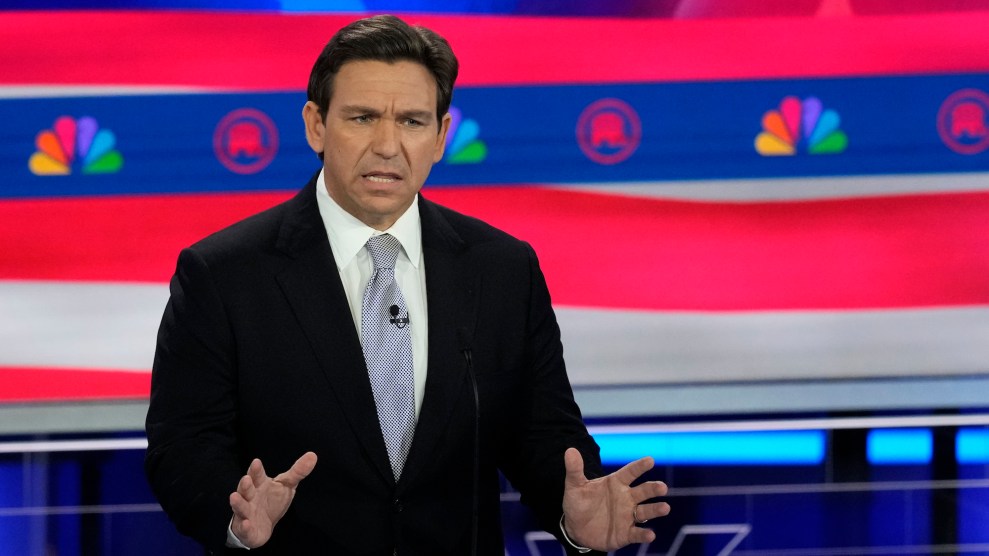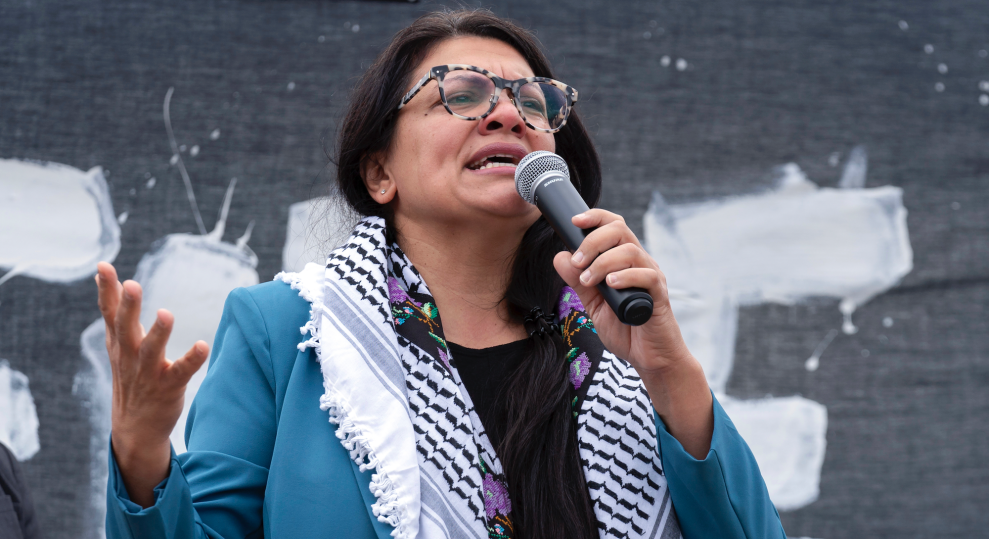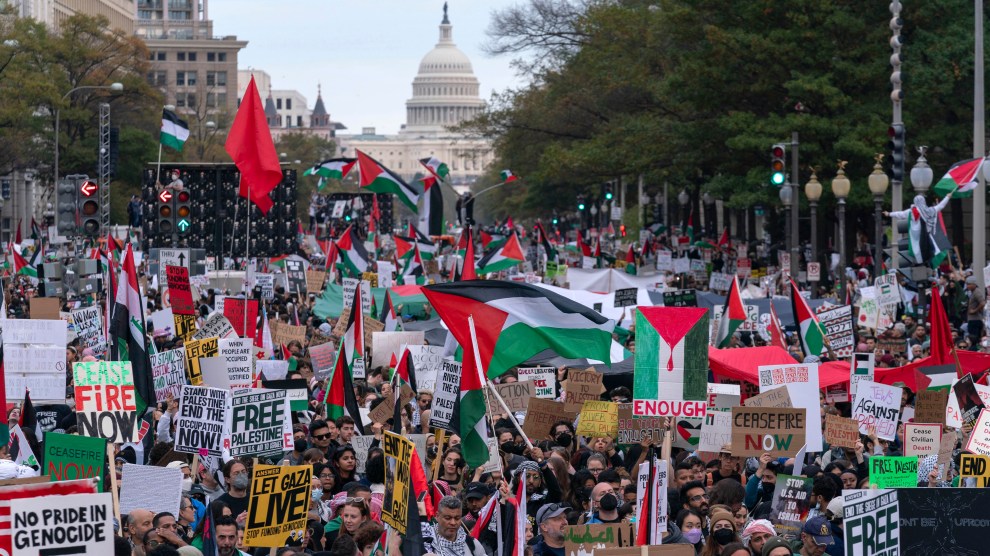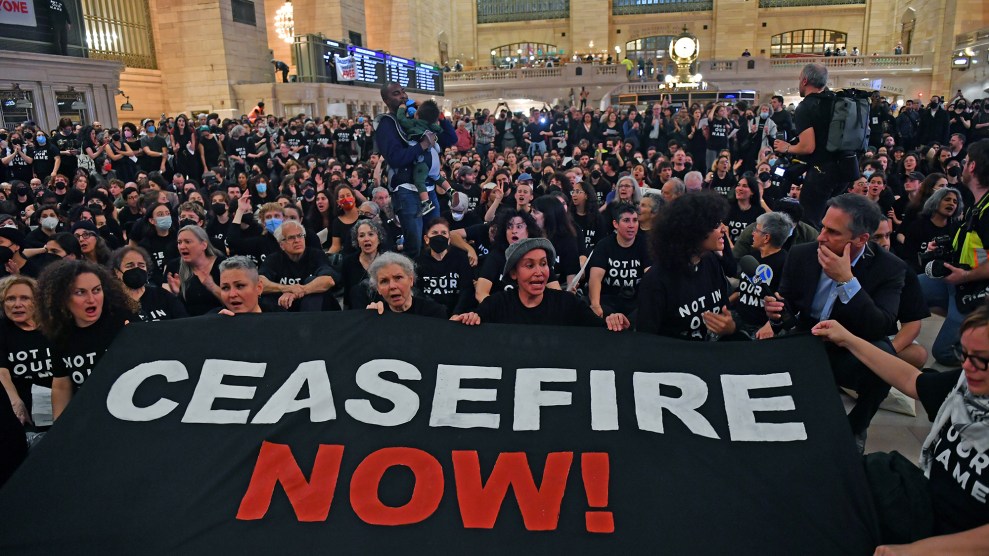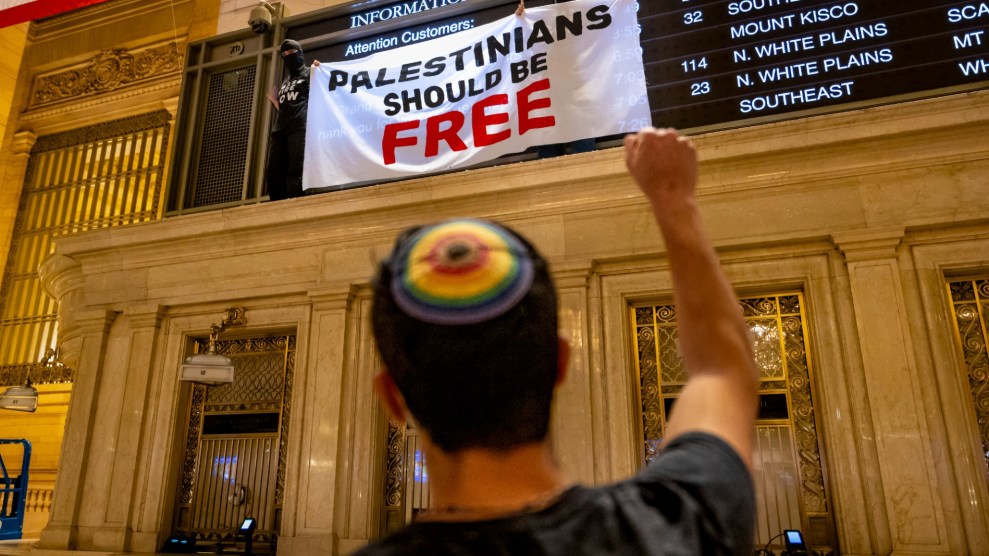
Protesters from Jewish Voice for Peace demand a ceasefire in Grand Central Station on October 27th, inspired by the ACT UP demonstration against the Gulf War. Michaal Nigro/AP
“Mr. President, you care about Jewish people. As a rabbi, I need you to call for a cease-fire right now,” called Rabbi Jessica Rosenberg last week, interrupting Biden at a campaign reception in Minneapolis.
Biden responded with “I think we need a pause.” It was the first time Biden had wavered from his unconditional support for Israel, though he clarified that “a pause means give time to get the prisoners out. Give time.”
Rosenberg, a Reconstructionist rabbi, author, and organizer, is a member of the rabbinical council of Jewish Voice for Peace, a large coalition of anti-zionist Jewish Americans calling for a ceasefire in the ongoing conflict in Gaza. Organizers say that JVP protestors’ mass arrests in recent weeks are the largest scale arrests of Jews for civil disobedience in US history.
The internet quickly caught on to Rosenberg’s comments. While many voiced support, hate against Rosenberg, an LGBTQ+ woman, also exploded on social media. Some was from the expected sources, like conservative talk show host Megyn Kelly, who said she “was a man pretending to be a woman” who may be “pretending to be a rabbi too.” Kelly emphasized that Rosenberg has a beard (5-10 percent of cisgender women in the United State naturally grow beards).
“I’m so proud to be a queer and visibly gender non conforming femme woman who could take that action,” Rosenberg says about her appearance and her confrontation with Biden. “Let all, especially SWANA and Jewish bearded femmes see ourselves in power and unafraid.” (SWANA refers to Southwest Asia and North Africa, the region commonly referred to as the Middle East.)
Such transphobic, nasty comments are not surprising from Kelly. But she wasn’t the only one: Stella Inger, a Jewish news anchor from the One America News Network, tweeted a video of Rosenberg’s comments, calling her a “biological man.” Local Brooklyn politician Yaakov Kaplan, highlight headshots of Rosenberg to question her legitimacy as a woman, Jew, and Rabbi. In a different incident, a feud unfolded online between two queer, Jewish content creators. One of them, Michael Valdes, supports Israel, and made a halloween costume meme of Matt Bernstein, who he described as a “Self-hating Jew” and “Queer for Palestine” with a “lack knowledge of Jewish history” and “desires to be wanted by the ‘wokes’.”
This vocal transphobia from supporters of Israel is telling, considering how so many defend the country as a bastion of safety for LGBTQ+ people in the Middle East. On October 29th, Israel’s official Twitter account posted: “Looking forward to seeing Hamas raise the rainbow flag across Gaza.” After the October 7 attacks, David Kilmnick, founder of the LGBT Network, wondered why more LGBTQ+ people hadn’t come out in support of Israel considering it is the “only country [that] protects LGBT people from discrimination and violence.” Mark Segal, a Jewish LGBTQ+ activist and journalist who participated in Stonewall, wrote an op-ed “Hamas hates you as well,” directed at the Pro-Palestine queer community.
In reality, things in Israel are more complicated, and critics of the country have long accused it of “pinkwashing,” a term created by Palestinian activists. For example, Israel doesn’t allow same sex marriage or adoption.
For Rosenberg, support of justice in Palestine is directly related to her queer and Jewish identity. “Supporters of Israel say, ‘This is being done for your safety,'” explains Rosenberg. “As a queer person and as a Jew, my bodily autonomy and safety is very visceral. The idea that somehow LGBTQ identity can be safeguarded by a military occupation and displacement of people is just absurd. What kind of freedom is that?”
Jay Saper, a lead organizer for Jewish Voice for Peace, explains that the dynamic of receiving anti-LGBTQ+ hate from supporters of Israel is not new. “The most deeply homophobic and transphobic remarks that I personally have received are from Zionists,” says Saper, “but we’re going to continue to speak up and to take action like never before, to work to bring about a ceasefire and justice for Palestinians.”


